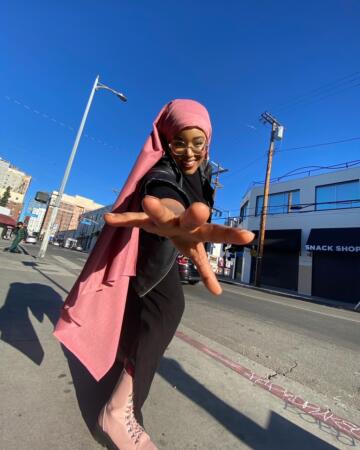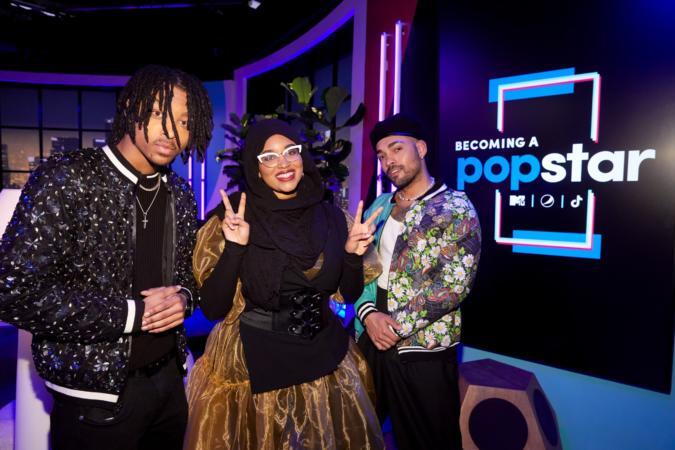Amira Unplugged is making history!
She is the first Black deaf contestant on MTV’s Becoming A Popstar. The show featured hopeful music artists under the critique of celebrity judges Becky G, Joe Jonas, and Sean Bankhead. Amira showed why she was the one to beat.
Described as a genre-bending artist, Amira Unplugged rose to social media stardom by soulfully showcasing her vocal agility while using sign language to reach her fans who are deaf on TikTok. Her upbringing as a (d)eaf, African American Muslim woman in the South caused her to aspire to make music that unifies communities.

By crossing genre lines with universal themes of triumph, darkness and hope, Amira aims to bring vastly different people together through common themes. Her hearing impairment also informs a great deal of her music, causing her to add unique textural elements to her original work.
Shadow and Act Unscripted spoke with Amira about her experience on the show. She also delved into how her religion informs her creativity and how she intends to inspire others like her.
Tell us about the experience of being on the show.
I keep saying it’s such a life-changing experience, and I really do mean that because every single task that they had us do really helped to shape me into a better artist overall. I was asked to quickly write songs that would be radio-ready and quickly perform music and create videos, learn choreography and everything. And it just showed me that this is something I can do.
What was it like working with the celebrity judges?
That was a really special experience because their main role is the critique role. So once they’ve seen our product and have given us these resources, they want to see that there’s been growth every week. And so hearing what they had to say, being able to apply that to the next video challenge and just do better and better is what I think was a really special experience, especially from three judges who are whose work has affected my life personally.

Which just did you find to be the most helpful?
I think that’s hard to say because every challenge I think the judges shine in a different way. Becky G is very representative of her hometown and country and the hometown rep your city thing is what she has down. I think that was more her than it was in choreography. I think that Joe Jonas is really looking at the vocal quality overall. So I can’t really pick one.
How did your religion impact your time on the show? Were there certain things that you didn't necessarily want to do? Did you have a lot of room to explore that and see how it would affect you creatively?
I’m so grateful to the show for giving me the space to be fully myself because obviously a lot of people haven’t worked with an artist like me before, and so I really had to come in and break new ground and say, ‘This is something I’m not comfortable with. I don’t dance like this, or I need costumes that fit this way. I’m going to have female dancers’ – like all of these different things that kind of fit into my identity as a Muslim woman. And in that way, I was able to just be a mirror and be someone who mostly could be proud to watch.
And what do you hope that the future for deaf performers looks like in the industry? How how do you think this impacts the industry overall?
I got to work with some world-class producers, and they really did take the time to listen to what my needs were in the booth when I was recording and my needs when I was like, ‘OK, I want to test the sound on different devices to make sure that it’s still felt and heard.’ And so I hope that this also breaks new ground for people with hearing impairment to be able to come into the space and feel like they can ask for the accommodations they need.
The finale of Becoming a Pop Star airs Friday on MTV.

